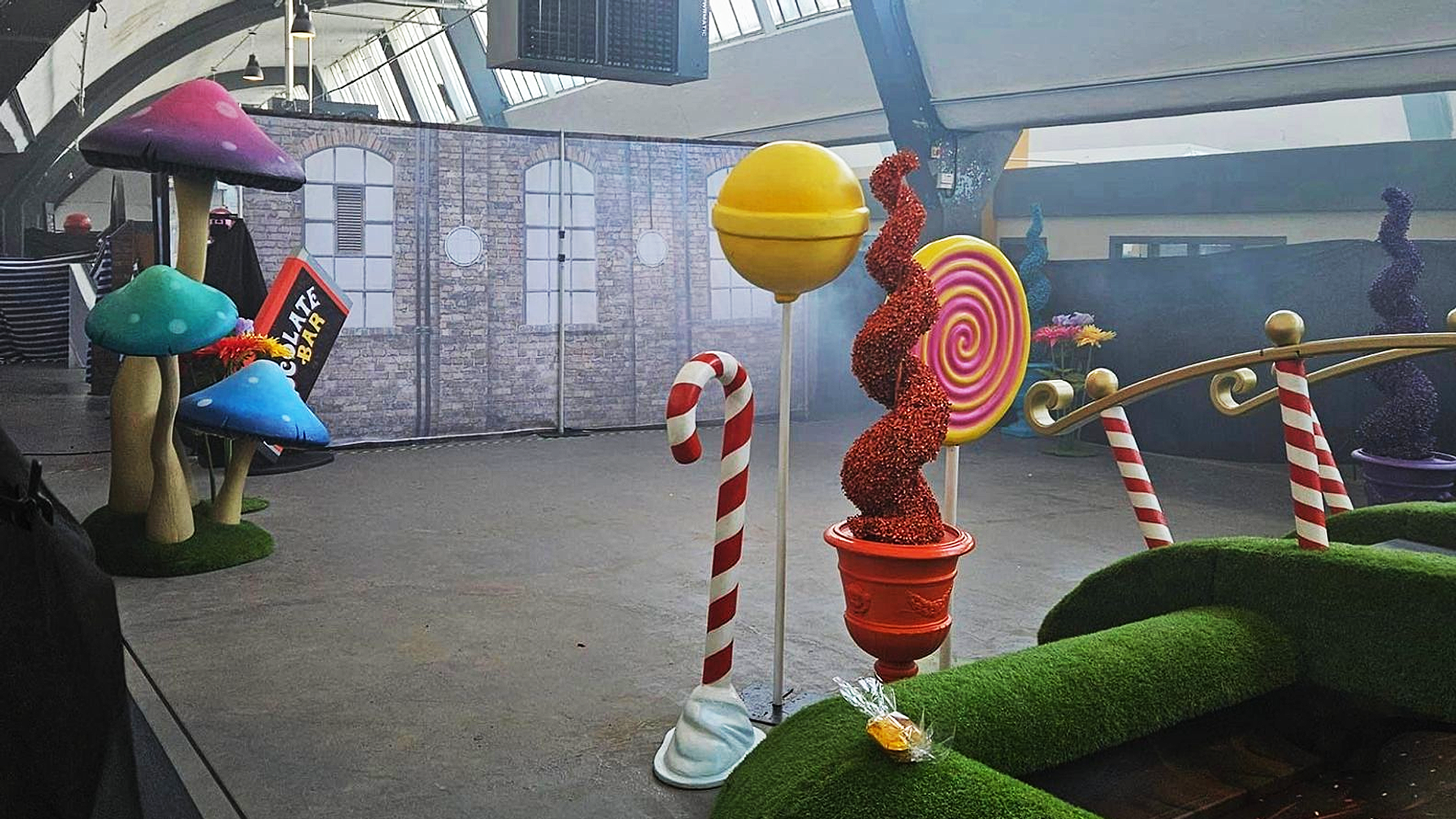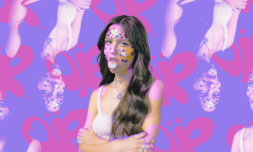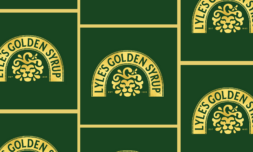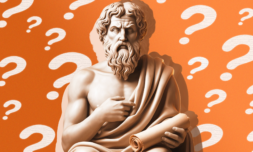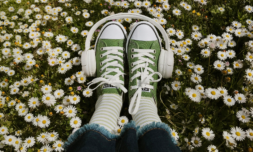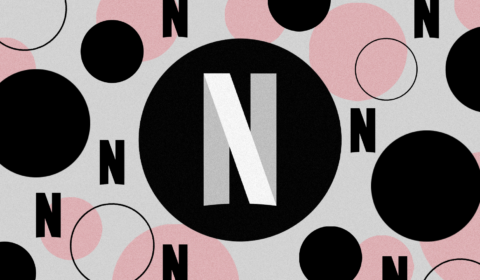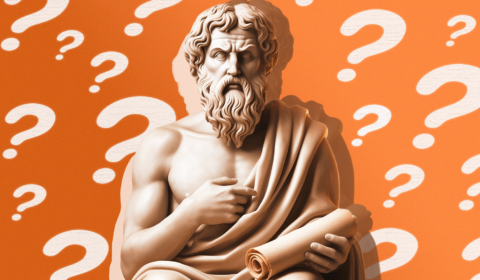An ‘immersive’ Glasgow adventure day based on Charlie and the Chocolate Factory has been described as a scam, after ticket-goers complained of a lacklustre experience. It’s an example of how unchecked AI advertisements can lead to serious product misrepresentation.
Nearly everyone has seen or read the classic tale of Charlie and the Chocolate Factory.
Written by Roald Dahl in 1964 and later adapted into several films starring Gene Wilder and Johnny Depp, it is considered a literary classic. It follows the experiences of a small boy, Charlie Bucket, as he takes a tour of Willy Wonka’s famous chocolate factory.
The novel describes fanciful lakes of chocolate, towering pipes of liquorice, and magical tunnels that spin Charlie’s sensory perceptions upside down. What it does not depict is an empty, grey warehouse in Glasgow with a few AI-generated banners crudely taped to a concrete wall.
That’s what unfortunate ticket-goers for ‘Welcome to Willy’s Chocolate Experience’ were treated to this past weekend.
Police were called to an ‘immersive’ Willy Wonka Experience after families showed up to an ’empty warehouse’
The event reportedly charged $40 for entry, advertised with AI art, and said it would be a ‘journey filled with wondrous creations and enchanting surprises at every… pic.twitter.com/udz8KeWVxQ
— Culture Crave 🍿 (@CultureCrave) February 27, 2024
What was ‘Welcome to Willy’s Chocolate Experience’ supposed to be?
Organised by events company House of Illuminati, ‘Welcome to Willy’s Chocolate Experience’ was advertised as an immersive, in-person experience that could turn ‘chocolate dreams [into] reality.’
The official website boasted an ‘enchanted garden, giant sweets, vibrant blooms, mysterious looking sculptures, and magical surprises.’
Tickets started at £35 and intended to include a host of decorated spaces and exhibits that would ‘transport you into a realm of creativity’. Live performances were promised alongside a ‘twilight tunnel’ and ‘imagination lab’.
The Willy Wonka experience, on the left was what was advertised, on the right is what you got.
The Police were called and the people running it in Glasgow were forced to refund the tickets. pic.twitter.com/u5h15tiO8P
— BladeoftheSun (@BladeoftheS) February 27, 2024
According to reports, hundreds of parents purchased tickets and were sorely disappointed when they arrived to a mostly-barren events space that boasted a single, small bouncy castle, a few plastic chairs, and a school cafeteria table.
Proceedings were so poor that the police had to intervene and halt operations halfway through the first day.
Customers described the day as ‘appalling’, and an ‘absolute shambles of an event’.
Attendee Stuart Sinclair said to Sky News that his children ‘only received a couple of jelly babies and a quarter of a can of Barr’s Limeade’. That’s a far cry from the life-altering adventure promised by House of Illuminati.
I asked an AI art prompt to come up with a ‘photorealistic wide shot of a very depressing, cheap and tatty Willy Wonka-themed attraction for children in an empty warehouse’, and it still isn’t as grim as the real thing in Glasgow. pic.twitter.com/RFXzzjm5ts
— Paul Carnahan (@pacarnahan) February 27, 2024
Decorations appeared to be products from a mix of various franchises, including Santa’s Grotto candy canes, model mushrooms from an Alice in Wonderland exhibit, a non-descript ‘factory’ archway, and AI-generated posters. They’re sparsely scattered across the large events space, and do little to balance out the overwhelming grey walls and flooring.
Full refunds have been forcefully issued onto House of Illuminati, who now promises to give all customers their money back despite a ‘no refunds’ policy on its website. This may take up to ten days, it says. A Facebook group has been set up by disgruntled visitors who were let down by the day’s events.
A spokesperson added that the company was ‘devastated’ and that it ‘understood people’s anger and frustration’.
Actually in awe of how grim this is. Fucking outstanding https://t.co/Tz5AdEy3Mk pic.twitter.com/8sAeyfrDeG
— Nooruddean (@BeardedGenius) February 27, 2024









